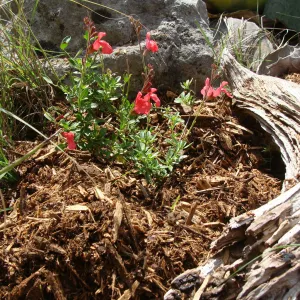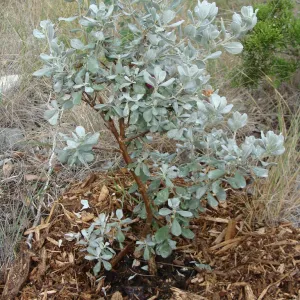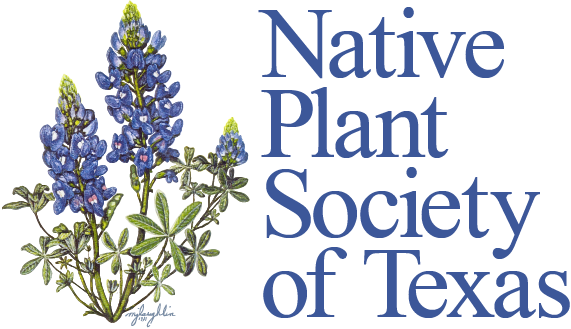By Christine Westerman – Boerne Chapter, Native Plant Society of Texas
Published in the Boerne Star on November 13, 2014
Years of gardening has taught me to really appreciate organic matter. But when I thought about writing about organic matter, I quickly observed a problem – could anything sound more dull? The Natural Resources Conservation Service will tell you that organic matter is the “fraction of the soil composed of anything that once lived…plant and animal remains in various stages of decomposition…” which, although appropriate sentiments for Halloween, may not motivate you to run outside and start running your hands through the dirt in your yard.
So one idea I had was to search the internet for other definitions organic matter – perhaps I would find some more inspiring words. For example, according to thesaurus.com, synonyms for organic matter include “basic material,” “grist,” and “primal matter.” Now, “primal matter” does have a nice ring to it…but does it really get the point across? I tried entering the word compost, and did get some pithy synonyms like “fertilizer” and “soil conditioner.” Now I felt like I was getting somewhere.

“Fertilizer” is a word we can all relate to – vitamins for your plants and lawn. According to the Texas Commission on Environmental Quality, leaves contain 50 to 80 percent of the nutrients a plant extracts from the soil and air during the year. In other words, if you rake up and throw away those leaves, you are taking away a huge amount of nutrients that could be going back into your yard and garden. Better to chop up those leaves with your mover, use them to mulch your garden beds, or create a compost pile. That way you can keep all that natural fertilizer on your property.
Or how about “soil conditioner”? While the Natural Resources Conservation Service tells me that organic matter “maintains soils in an uncompacted condition with lower bulk density,” “soil conditioner” tells me that this stuff is going to make my soil feel nice. And it actually does! If you are fortunate enough to be able to work a garden or landscape area in your yard year after year, feeding it often with compost and mulch, you’ll find it will transform your sticky clay soil to a nice, fluffy material that you can actually put a shovel through.

Have you ever walked through the woods and noticed the lack of grass, weeds and other ground cover? This is, at least partly, because of the natural mulch effect of the fallen twigs, leaves, needles, etc. that helps suppress weed growth. Use a generous layer of 2 to 4 inches of organic mulch, and it will help the soil in your garden beds retain more moisture, stay cooler, and resist erosion (be sure not to pile the mulch up against the trunks of your trees). You can buy commercial hardwood or bark mulch, or use materials from your yard, such as chopped branches from pruning/ trimming, or composted leaf litter.
So celebrate the wonderful fall weather by piling on the primal matter/compost/soil conditioner in your vegetable garden and landscape beds. It will improve their appearance, protect the soil, help suppress weeds, and contribute nutrients to the soil as it – in honor of Halloween – slowly decomposes over the winter. Now if that doesn’t make you want to run your hands through the dirt, I don’t know what will.
Christine Westerman lives in Pipe Creek, often runs her hands through the dirt, and is an environmental consultant and volunteer for the Texas Parks and Wildlife Department and the Turtle Survival Alliance. For more native plant information, check out the Native Plant Society of Texas Boerne Chapter website at: http://www.npsot.org/wp/boerne/.
